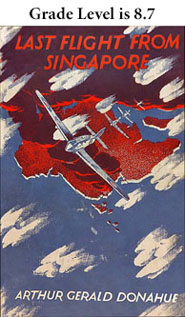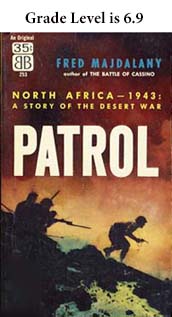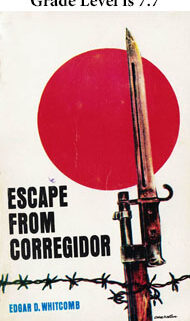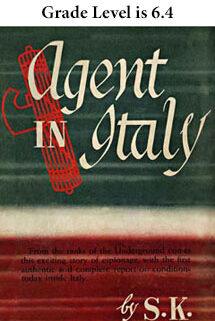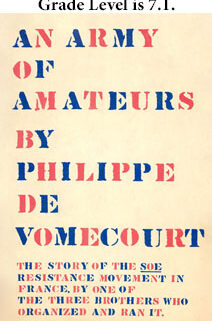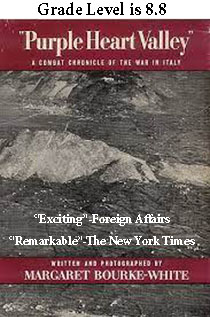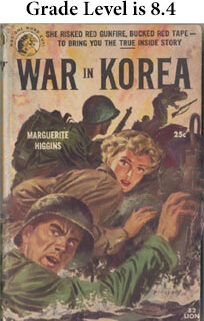Last Flight from Singapore with Maps and Illustrations by Arthur G. Donahue
Fighting on after the Fall of Singapore
To read this ebook on a computer or tablet using Google Play Books, or iBooks on your tablet or iPad, download this epub format.
To download a mobi file for your Amazon device, click here
Directions on how to email this file to your Kindle device are here.
To add this mobi file to your Kindle for PC software to read the chapters on your computer, see these instructions .
The Kindle Personal Document Service allows teachers, or librarians to send a mobi file to up to 15 student Kindle email addresses at a time.
With the Calibre app, you and your students can read this ebook in epub format on computer screens. By changing the background color, and enlarging the font, the reading experience on a computer screen is reasonable. With Chromebooks, the device will offer a choice of ereading apps when you open the epub file.
As one of the storied few who defeated the Nazi Luftwaffe during the Battle of Britain, American Arthur G. Donahue-Royal Air Force Flight Lieutenant and recipient of the Distinguished Flying Cross-wished to continue his service and requested overseas duty.
In October 1941, he was sent to the British protectorate of Singapore as a precaution against a possible threat from Japan, which was already conducting a war in China. This posting soon put him on the spot as the Japanese Army swept down the Malayan peninsula to assault the fortress island.
Within two months, all of Asia was thrown into turmoil as Japan simultaneously bombed Hawaii and invaded the Philippines and the Dutch East Indies. Japanese forces swiftly conquered much of Southeast Asia and began moving toward Burma and India. Standing in the face of this onslaught was the British stronghold of Singapore.
Donahue and his squadron began around-the-clock sorties, reminiscent of their battle against Germany a little more than one year earlier. This time, however, the British forces were overwhelmed and they were forced to surrender the city to the Japanese in February 1942, an event Winston Churchill called “the worst disaster” in British history.
During the final phase of the battle, Donahue was wounded while strafing Japanese transports unloading troops to storm Singapore. He managed to land, and was airlifted on the last flight from the city and ultimately to a hospital in India. In Last Flight from Singapore, Donahue tells his dramatic story, accompanied by photographs he took himself, of the intense and futile battle against the Japanese for control of the gateway to the Malay Peninsula. He continues his story through his convalescence to his return to England, where he once again began patrols over Europe. The manuscript for “Last Flight from Singapore” was found among his effects after he did not return from a patrol in 1942 and was presumed lost.
From the New York Times review:
“Donahue is no literary artist and he makes no attempt either to dramatize or to underplay his experience. He tells them in a simple, unvarnished manner, much as if he were sitting down with some friends back home. The result is pretty close to what the real thing must have been. There are times when the horror and futility of the Singapore incident shine through with sickening clarity…
“Donahue was one of the expendables, one of the few who stood in the breach while the rest of us found out what was happening. He was one of the few of whom Churchill spoke when he cited the great debt of the many.”

